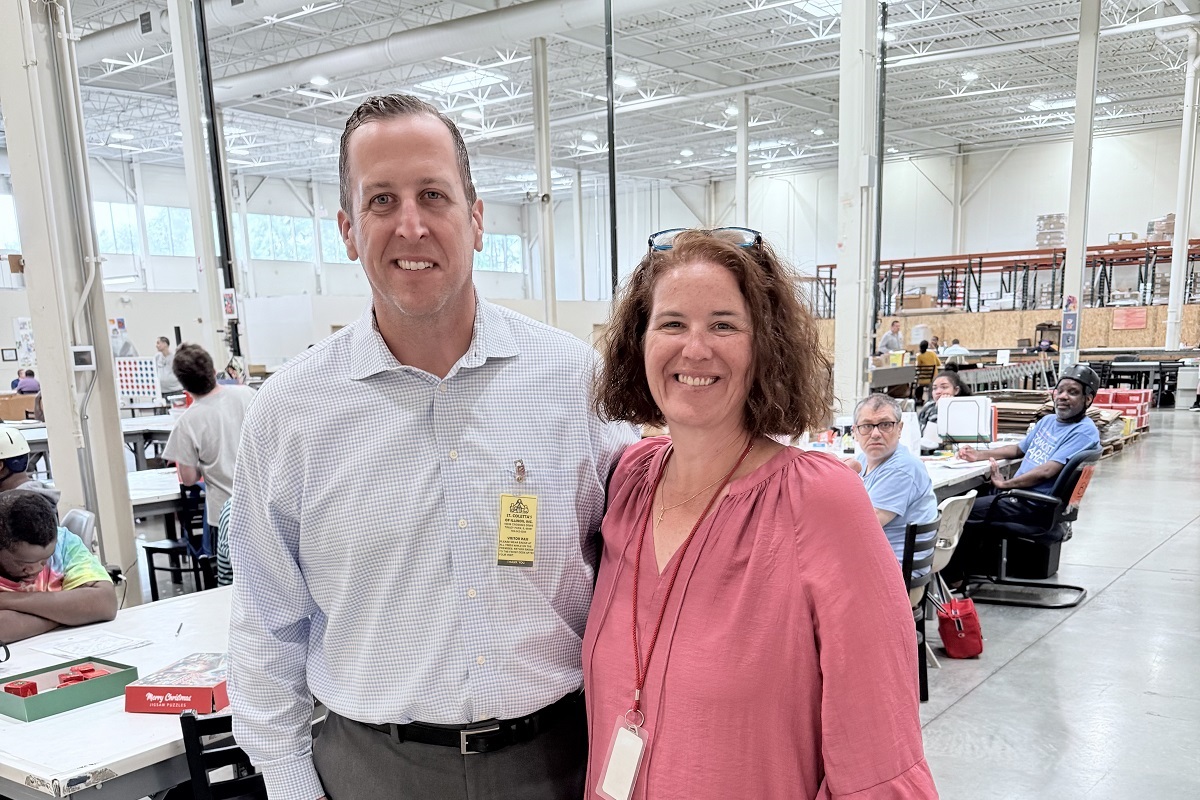
TINLEY PARK — State Senator Michael E. Hastings recently visited St. Coletta’s of Illinois to meet with CEO Heather Benedick and discuss how the state can better support organizations that provide critical services to individuals with developmental disabilities and families seeking mental health care.
“St. Coletta’s is an anchor for families who rely on these services,” said Hastings (D-Frankfort). “They not only provide quality care for individuals with developmental disabilities, but they also accept Medicaid patients and ensure mental health therapy is available to those who need it most. By working to streamline payment processes and foster partnerships with other providers, we can build a stronger, more efficient system of care for our community.”
St. Coletta’s of Illinois, a nonprofit founded in the spirit of compassion and inclusion, delivers a wide range of services including residential programs, vocational training, educational opportunities, and community engagement for individuals with developmental disabilities. The organization also provides outpatient mental health therapy — one of the most in-demand services in the south suburbs — and accepts Medicaid patients, ensuring access for those who might otherwise be left without care.
Hastings’ visit focused on three priorities: improving the state’s payment process to ensure providers receive timely support; exploring ways to partner St. Coletta’s with other community-based organizations offering complementary services; and increasing the efficiency and reach of therapy programs that are vital to residents across the region.
Benedick echoed the importance of collaboration, noting that partnerships between local providers could enhance service delivery.
“We are grateful for Senator Hastings’ leadership and his willingness to listen to the challenges community providers face,” said Benedick. “By working together, we can maximize resources and expand access to therapy and care for those who depend on us most.”
Hastings reaffirmed his commitment to advancing policies that reduce bureaucratic obstacles, strengthen partnerships among providers, and ensure that state dollars are used effectively to expand services for residents with developmental disabilities and those in need of mental health support.


